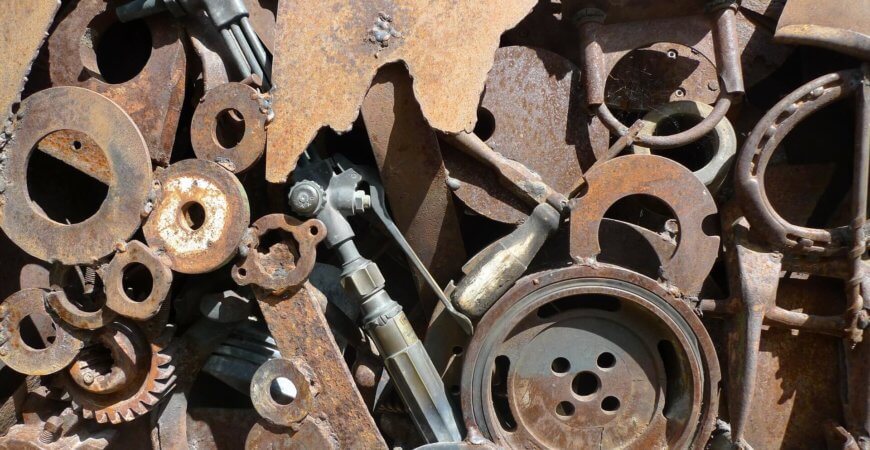

How to start recycling steel
Metal recycling offers numerous benefits ranging from environmental to financial ones, especially when it comes to steel recycling - steel is used in everything from food containers to cars, construction and even many household items. There’s a big chance then that you have some scrap steel lying around the house right now - but do you know what to do with it? Can all items made of steel be recycled? What happens to your scrap metal after you sell it?
Steel - the most recycled metal in the world
Steel is 100% recyclable - this means that all of the steel that’s being used today can, in theory, be recycled and reused one day to serve a completely different purpose. And the fact that it doesn’t lose its quality in the process makes steel and stainless steel recycling even more beneficial - it can be processed over and over again without risking damages or losing the properties that make this metal so useful in so many industries.
Items you can recycle
With the estimated recycling rate currently standing at over 80%, steel is definitely the most recycled material on the planet - and the recycling rate for steel used within the construction industry is even higher! But while you don’t have access to construction steel and big steel structures, there are many smaller items made of this metal that you can find around your house, including:
- food and drink cans,
- tools,
- cookware,
- pipes,
- household appliances,
- kitchen sinks.
Items you cannot recycle
There are certain steel items that cannot be recycled, and you won’t be able to sell them with the rest of your scrap metal. The items in this category are either too dangerous (e.g., due to toxins) or too difficult (making the process too expensive) to process and include paint cans, motor oil cans and gas tanks.
Steel recycling process
- Steel can be collected from different sources: scrap yards, kerbside collection, magnetic extraction from domestic waste at waste plants. All items are then sorted before being sent to the processing plant.
- At the processing plant, metals are shredded into smaller pieces and then melted in a furnace at high temperatures.
- The melted steel gets purified to leave it free of any contaminants.
- And finally, it is solidified into ingots that can be used in the manufacturing process of new items.
What are the benefits of recycling steel?
- Steel can be recycled indefinitely without losing its high quality and properties - this means that recycled steel can be used both in manufacturing and construction without posing any risks to the durability of the items or buildings it’s used in.
- Another huge advantage or recycling, not only steel but metals in general, is reduced energy consumption. Processing steel and reusing it requires a lot less energy than mining new metals.
- Along with energy recycling conserves natural resources as well. It uses less water, produces significantly less pollution and helps protect the environment.
- When metals get recycled, they don’t end up in landfills. This means that instead of increasing the already huge amount of waste, steel can be processed and reused again.
- Recycling is much cheaper than mining and processing new ores. This offers huge financial benefits both to consumers and manufacturers - the cheaper the production, the cheaper the final product.
- This metal is used in so many items and industries that it is not an exaggeration to say that we’re surrounded by steel in our everyday lives. And this is exactly what makes steel recycling so beneficial - it provides greater and easier access to one of the most useful and important materials of the modern world.
If you want to sell your scrap metal, you have two options - you can find the nearest scrapyard and take your scrap steel collection there yourself, or you can look for a company that will come to pick it up from your own address. At Trans Metal, we offer scrap metal in Harrow and other parts of London to make recycling easier for you.
